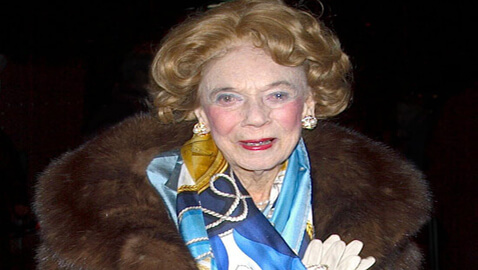
The settlement, made public by New York Attorney General Eric Schneiderman, also mentions other major beneficiaries including the New York Public Library, the Metropolitan Museum of Art and millions of dollars for Central Park, Brooklyn’s Prospect Park and other playgrounds around the city. The news has been hailed wholeheartedly by New York City leaders.
Brooke Astor’s story is a shocking revelation of New York high society, where the woman who left millions for the city was admittedly forced to live out her last days in squalid conditions including being forced to sleep on a couch stained with dog urine. Her son, who made life fearful for her, was convicted of grand larceny, falsifying business reports and other charges in trying to loot his mother’s estate.
The son had another will signed by Astor when she became victim to Alzheimer’s disease past an age over 100 years, and in that will tens of millions of dollars and valuable real estate were left to her son who forced a pitiful existence on her behind closed doors.
Astor Brooke was married to Vincent Astor and inherited a part of the fortune made by John Jacob Astor in the late 1700s and 1800s in fur trading and real estate.
Born as Roberta Brooke Russell in Portsmouth, New Hampshire, Brooke was a constant support for cultural institutions and charities across New York. She was the child of a Marine Corps officer, and she lived on Marine posts in Haiti, Hawaii, Panama, the Dominican Republic, and China.
Anthony Marx, the President of New York Public Library said the money from Astor’s estate would be used both for research, as well as “reading and literacy programs for disadvantaged children in New York City.” In a statement issued to the media, Marx said, “We are immensely grateful that her charitable intentions will be honored, and her dreams for the Library can be realized.”





































